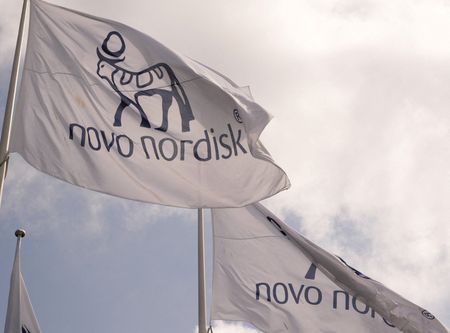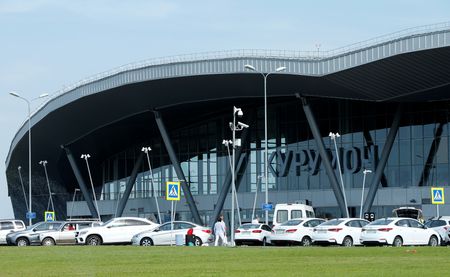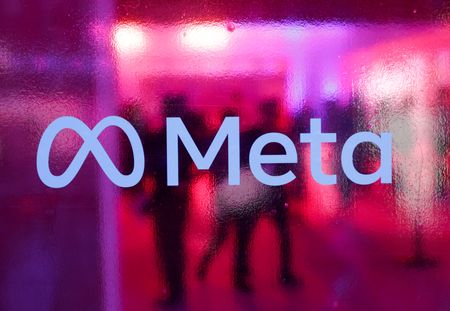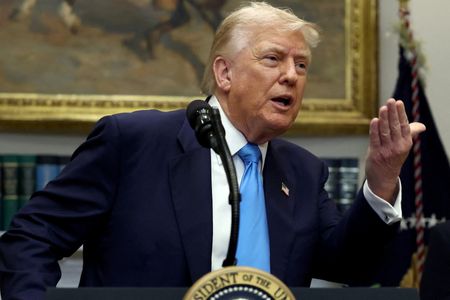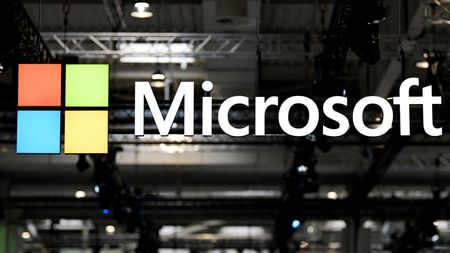By Ankur Banerjee
SINGAPORE (Reuters) -Shares of European drugmakers slipped on Friday after U.S. President Donald Trump sent letters to major pharmaceutical firms to cut drug prices in the United States, months after signing a sweeping executive order aimed at lowering prices.
The letters came as the latest setback for a sector that’s already grappling with the prospect of tariffs outlined in the U.S.-EU trade deal, which some analysts estimate could add as much as $19 billion in annual costs.
Trump called on 17 drugmakers to provide so-called most-favoured-nation prices to every patient enrolled in the government Medicaid health programme for low-income people, and to guarantee such pricing for new drugs.
Shares of European drugmakers Sanofi, AstraZeneca, GSK, Merck KGaA and Novo Nordisk slipped between 1% and 4% on Friday.
Novo’s 4% fall extends a selloff this week that started on Tuesday with a 28% plunge, wiping out $70 billion of the company’s market value after the maker of weight-loss drug Wegovy issued a profit warning and named a new CEO.
Its shares pared some losses after a report that the U.S. could pilot coverage of weight-loss drugs under government-backed Medicare and Medicaid program. Rival Eli Lilly’s shares rose nearly 2% in U.S. premarket hours.
The European healthcare index was down 0.7% by 1209 GMT after hitting its lowest since April earlier in the day.
The pharmaceutical companies that received the letters have until September 29 to respond with binding commitments to the terms laid out by Trump.
Pfizer, Johnson & Johnson, Eli Lilly and Merck are among the U.S. drugmakers that received the letters.
Shares of U.S. drugmakers Merck, J&J, Gilead, AbbVie and Pfizer moved marginally lower premarket.
“Trump’s directive to the pharma companies will put them on the defensive and adds yet another layer of uncertainty for the sector which could also face import tariffs in time to come,” said Vasu Menon, managing director of investment strategy at OCBC.
“While Trump has set a deadline for these companies to comply, it remains to be seen if this is hard coded or if he will roll back some of his threats if these companies make an effort to engage him and soften his stance.”
Analysts, lobbyists and drug pricing experts though said it seemed unlikely that the pharmaceutical companies would comply with Trump’s demand to lower U.S. prices.
“It is unlikely the Trump administration will be able to successfully implement these policies – in some cases likely lacking legal standing to execute on what he outlines,” said BMO Capital analyst Evan Seigerman.
The companies including Pfizer, AbbVie, and German Merck KGaA’s U.S. division, EMD Serono, said they were open to working with the Trump administration.
Trump’s executive order in May directed drugmakers to lower medicine prices to align with what other countries pay, leading to some shift in how drugmakers look to sell their medicines.
Swiss drugmaker Roche said last week it was considering selling its prescription medicines in the United States directly to consumers to lower costs for patients as part of talks with the U.S. government.
(Reporting by Ankur Banerjee in Singapore, Additional reporting by Anna Pruchnicka and Bhanvi Satija; Editing by Amanda Cooper, Emelia Sithole-Matarise and Shinjini Ganguli)

